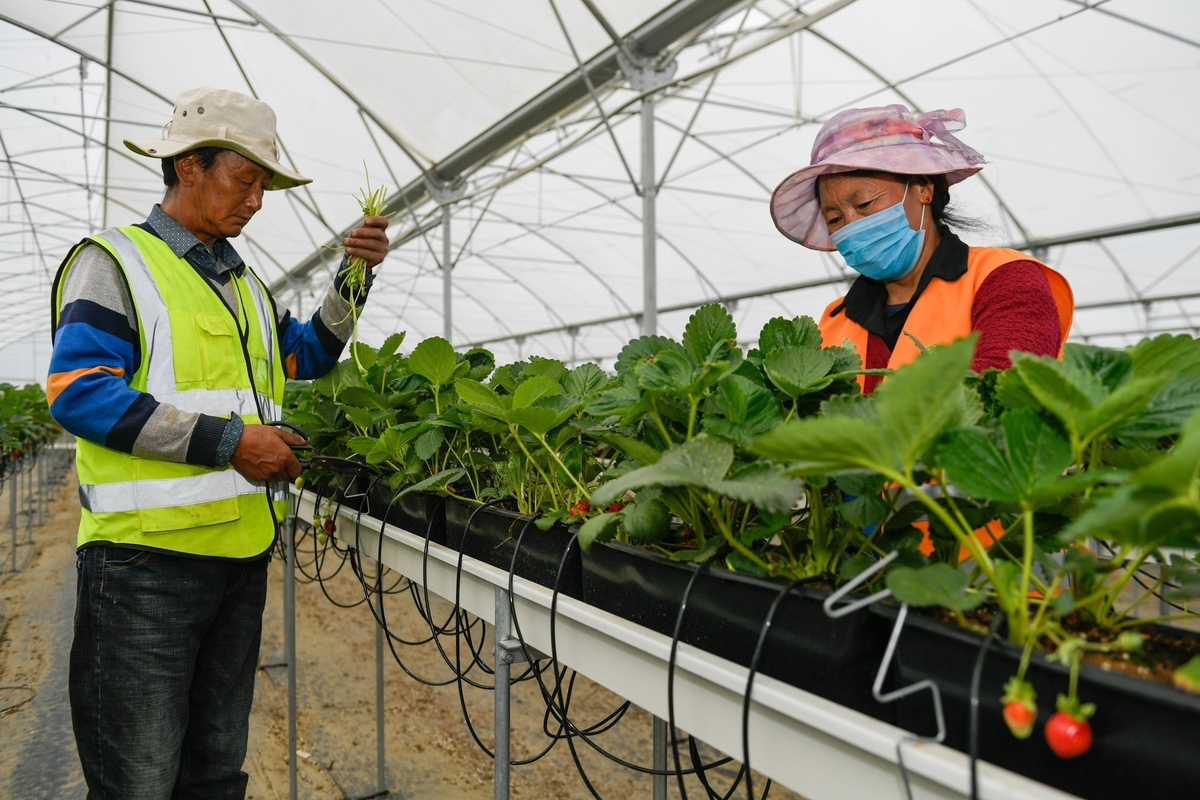Tibetans up for business are pulled back to their hometowns


XINING-As China pushes ahead with its rural revitalization strategy, a craze for entrepreneurship has swept across regions populated by Tibetans, once the economic backwater of the country.
Tsenga Rigz, 29, has run one of the most popular restaurants in the Golog Tibetan autonomous prefecture in Qinghai province for seven years, an unrivaled player among his competitors, offering Tibetan food.
Tsenga is one of the ambitious young men who saw business opportunities in their hometowns and chose to return from cities where they had previously settled.
Like many in China who move to big cities to seek better opportunities, Tsenga had previously moved to Shenzhen and worked as a chef.
"I learned from all the practice during my decadelong training and working in a big restaurant in Shenzhen," he said.
Tsenga revealed the secret of his restaurant's popularity was its large and unique menu. He has rolled out more than 100 improved Tibetan dishes to cater to more tastes. "Panfried yak meat and fried lamb roll are our recent best-sellers," he said.
In the past seven years, Tsenga's restaurant has created more than 100 jobs for locals and trained 20 apprentices from Gansu and Sichuan provinces.
"I plan to teach at a culinary school because I've always expected to popularize Tibetan food among more people in more regions," he said.
Norbu Dradul, who is in his early 30s, is one of the well-educated people who expect to secure a place in the Tibet autonomous region's booming education industry.
In 2013, two years after graduating, Norbu made up his mind to quit his good-paying job in Beijing and start a foreign language training institution in his hometown, Lhasa, the region's capital.
Norbu's training school has now realized an annual net profit of nearly 10 million yuan ($1.5 million). More than 10 percent of the income will be spent on employee training.
"Given that the government provides subsidies to support startups such as mine, I also want to make my due contribution to society," Norbu said.
Young Tibetan entrepreneurs like Tsenga and Norbu are experiencing a better business environment. Take Qinghai as an example: The province has offered loan guarantees totaling 400 million yuan in 2018, supporting 1,712 entrepreneurs.





































